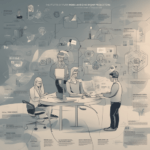Work Trends in Play
The future of work is not a distant concept, but a reality that is already happening. Technology, demographics, and social norms are reshaping the workplace in unprecedented ways. In this article, we’ll look at some of the major changes and predictions for the way we work in 2024 and beyond. We’ll explore how technology is enabling remote work, the value of soft skills, the rise of gig work, and much more.
The Changing Face of Work
The world of...
Recent Posts
-

-
 The Makeup Trends of 2024: Get Ready to Glow!Apr 25, 2024 | 2024 Makeup Trends
The Makeup Trends of 2024: Get Ready to Glow!Apr 25, 2024 | 2024 Makeup Trends -

-

-
 Top Selling VR Headsets & AR GlassesDec 9, 2023 | VR & AR Gear
Top Selling VR Headsets & AR GlassesDec 9, 2023 | VR & AR Gear -
 Humane Produces an “AI Pin” Ambient PhoneNov 20, 2023 | Ambient Phones
Humane Produces an “AI Pin” Ambient PhoneNov 20, 2023 | Ambient Phones -

-

-

-

-
 The Hottest Shopping Trends of 2023Oct 7, 2023 | Shopping Trends
The Hottest Shopping Trends of 2023Oct 7, 2023 | Shopping Trends -





